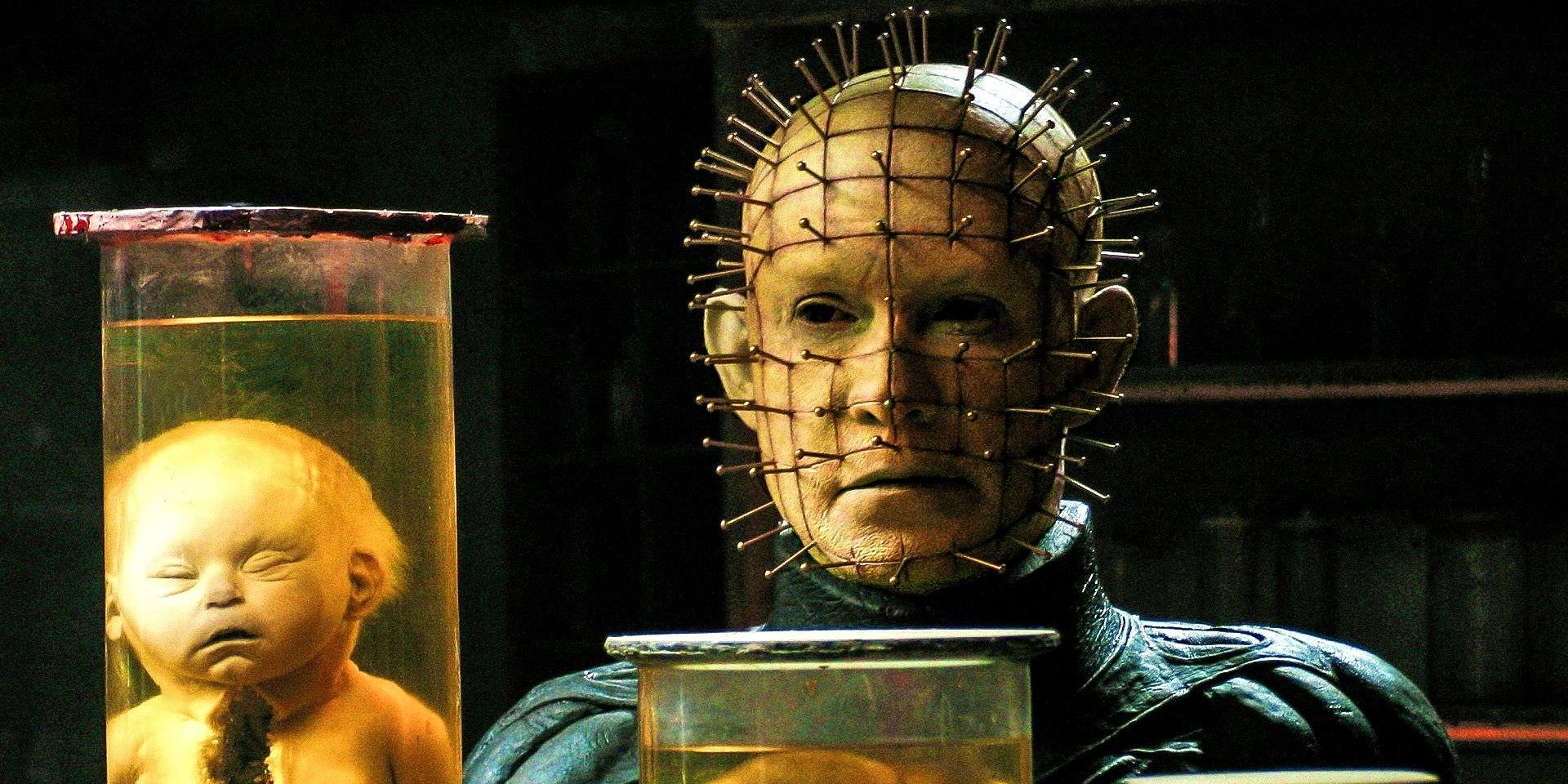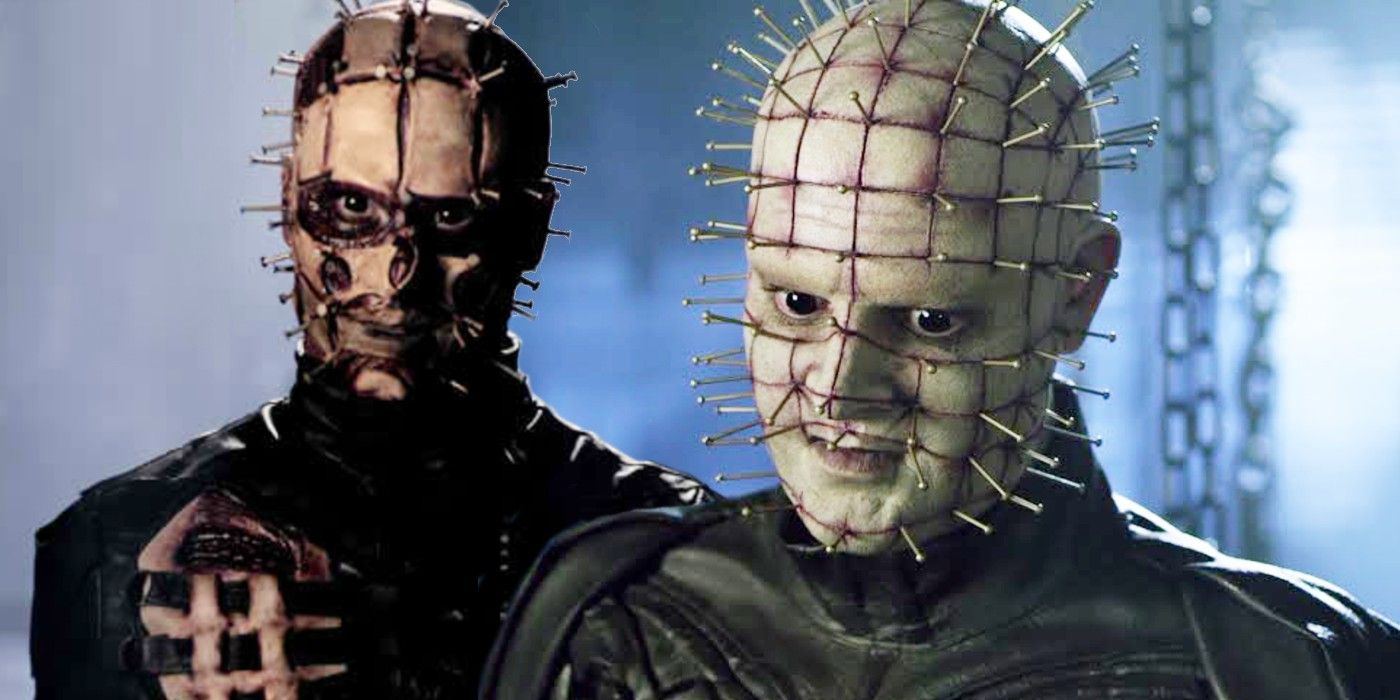The upcoming Hellraiser remake has the fanbase excited for the first time in many years, but here's why the series was afflicted with so many bad sequels. The '80s saw many movie monsters enter audiences' collective nightmares, including Jason Voorhees, Chucky and - most fittingly - Freddy Krueger. Hellraiser's Pinhead is arguably the most bizarre, with the Hell Priest belonging to a sect of demonic beings known as the Cenobites.
The Cenobites are summoned when people solve the Lament Configuration puzzle box, with the demons bringing the "lucky" winners to new heights of pleasure by inflicting unspeakable torture upon them. The Cenobites weren't the focus of the original Hellraiser, but their designs and menace were so captivating to audiences that later sequels greatly expanded on the lore behind them. Pinhead himself was never a slasher in the vein of Jason or Michael Myers and is apt to have a good conversation with his victims before ripping them apart with chains.
Like any successful horror property, the Hellraiser saga was soon run into the ground with mediocre to terrible sequels. In contrast to franchises like Halloween - which has always been a theatrical series - it didn't take long for Pinhead and company to be sent to direct to video Hell. Following the box-office disappointment of 1996's Hellraiser: Bloodline, - which will NEVER get a director's cut - every subsequent outing was STV. The original spawned nine direct sequels in total, and while it's not uncommon for a horror series to receive multiple follow-ups, at least some of those entries are better than others. The Hellraiser STV movies were pretty much all badly reviewed, with the main reason they were made so that producers could hold on to rights.
Low Budget Hellraiser Sequels Were Made To Keep The Rights
Dimension Films - run by Bob Weinstein - won the rights to both Hellraiser and Children Of The Corn in the early '90s. While he recognized the money-making potential of both - which were strong earners on VHS - he didn't particularly like or understand Hellraiser. When Bloodline bombed and Scream was a major success, he quickly focused his attention on that more populist brand of self-aware horror, as seen in later Dimension works like Halloween H20, The Faculty or Dracula 2000. The Hellraiser movies, meanwhile, were relegated to low-budget sequels that often just repurposed unproduced screenplays owned by Dimension by adding some scenes with Doug Bradley's Pinhead and his Cenobites.
The STV era was somewhat profitable as Dimension churned out four sequels in quick succession, with the seventh and eighth outings Deader and Hellworld - which featured a young Henry Cavill - being shot back to back. 2011's Hellraiser: Revelations was infamously shot on a tiny budget when Dimension realized they were within months of losing the rights. They had been developing a big-budget Hellraiser remake for years but paid such little attention they almost lost the series. Both Revelations and 2018's Hellraiser: Judgment were produced for less than $400,000 for those reasons, and suffer from stilted acting and bad screenplays. Hulu's upcoming Hellraiser serves as a reboot for a franchise badly in need of a fresh start.
While Hellraiser - where Pinhead technically isn't a villain - was never as financially successful as the likes of A Nightmare On Elm Street, it's still a beloved horror property, but it's been weighted down by poor sequels for decades. Hulu's Hellraiser can introduce a new generation to the saga while honoring the mythology of the series. The film was directed by The Ritual's David Bruckner, while creator Clive Barker acted as co-producer, marking his return for the first time since the '90s. In the same way Halloween 2018 redeemed that franchise following years of disappointing outings, the new Hellraiser can make viewers excited about the sights Pinhead has to show them again.


